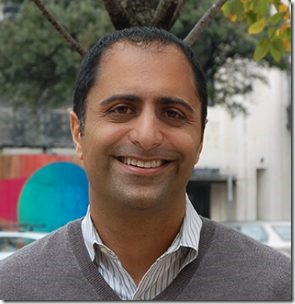Invodo CEO and CS alumnus Eric Engineer loves the business side of the technology industry. “I was a double major: CS and Managerial Studies,” he said. “Those were the bubble years and people were talking a lot about entrepreneurship, but it wasn’t built into any of the Rice programs. I went to first Rice Alliance meeting, when it was held a small event in a classroom. All those things got me excited and I knew I wanted to do more than just programming.”

Luckily, Engineer had interned at Microsoft during his Rice years and contacted his recruiters to ask if they had any openings for a recent graduate. He said, “They were just starting up a brand new leadership development program to bring recent college graduates into product management and field sales roles, rotating them through different functions and business units across the company over two years.”
Over those two years, Engineer realized that a product manager worked at the intersection of a lot of different functions. “It was like being a mini-CEO,” he said. “We dealt with engineering, sales, marketing, partners, finance, the whole spectrum. That got me even more excited about the business aspect of the tech industry and prompted me to go back for an MBA.”
Moving with his newlywed wife to Boston, Engineer began working on his MBA at Harvard and realized working in venture capital (VC) with early-stage technology companies was what he wanted. With much of his family based in Texas, Eric started his search there.
“It’s pretty rare to find a summer internship at venture capital firm – let alone in Texas,” Engineer said, “but I had looked at the alumni databases for both Rice and Harvard and turns out there was a venture capitalist in Texas that appeared in both databases. So I emailed John Jaggers, the managing director at Sevin Rosen, with a subject something like “Rice-Harvard alumni seeks VC internship in Texas” and that got his attention.
Engineer worked at Sevin Rosen for four years, and worked closely with an Austin startup called Invodo. “I’d written the original memo as to why we should invest in them,” he said. Invodo helps retailers and manufacturers produce videos that help them sell more products online.
Invodo was only one of several startups Engineer worked with, but it was one of the companies that helped him broaden his own career. He said, “I really wanted to get back to operating within a company, so I made the shift from investing in startups to helping grow one,” said Engineer. “At the time, I was thinking it would be good to get more operations experience and maybe go back to venture capital in the future. But now, my primary focus as CEO is on making Invodo a success and eventually delivering a healthy return to our investors.”
Now that Invodo has entered the profitability phase, he says his whole job is empowering and inspiring people. “Develop the strategic plan and get people excited about it, then power them with resources – people or dollars – to make sure it happens,” he said.
He thrives on the constantly changing environment, but the key to his success is in constantly communicating value to customers, employees, and investors. He said, “We have to tell the story in a way that everyone understands. While my CS knowledge has been important to my career in the technology industry, it was the combination of those classes with my Managerial Studies classes that made the difference for my career. Those were the most relevant to what I do now.”
He learned in June Ferrill’s Managerial Communications class that business writing was a lot more like journalism, almost the complete opposite of academic writing. “Make your point in the first sentence and move on,” he said. “And Dennis Huston’s class on verbal communications – I stayed up all night standing in line to get into his class – but the confidence we built in his classroom has helped me get up in front of large groups of people and even speak at conferences.”
Engineer’s best days are when he sees his team come together to acknowledge a big milestone. Recently, Invodo’s Austin team traveled to their production facility in Dallas to celebrate the company’s best-ever sales quarter. Both teams got to socialize and have fun together, celebrating their accomplishments. “Coming up with an idea or a strategy is easy,” he said. “The execution is the hard part. That is done by people and you have to be able to communicate and motivate people to get things done.”
Published on Rice University website

